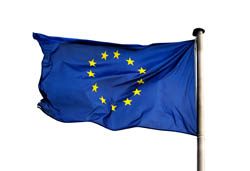How is Europe perceived from outside the EU?
The EUMAGINE project studied how Europe is perceived from outside the EU, and how these perceptions affect migration aspirations and decisions. The project focused on how people's awareness of the democracy and human rights status of their home regions and countries and of potential migration destinations, affect their migration intentions. The research population consisted of 2 000 individuals aged 18-39 in each of the four research countries: Morocco, Senegal, Turkey and Ukraine. Attempts to migrate to Europe are preceded by migration aspirations. These migration aims may be assumed to be linked with the perceptions on democracy and human rights status of both Europe and the country of origin. Our definition of human rights and democracy incorporates aspects such as corruption, safety and security, freedom of expression, cultural freedom, job opportunities, social security, and quality of health care/schools. Insight into these perceptions and aspirations as well as their possible interconnections and determinants may therefore be a necessary condition for an informed migration policy in Europe. The results of the EUMAGINE project demonstrate the relevance of perceptions on human rights and democracy in the home country and the migration destination in explaining migration aspirations. Perceptions of human rights and democracy status were operationalised by looking at people's views on job opportunities and corruption levels, educational opportunities and gender equality. The analysis showed that negative views on job opportunities and corruption levels in the country of origin on the one hand and positive perceptions of employment and corruption levels in Europe on the other positively affect migration aspirations. It should however be noted that perceived corruption levels at home and in Europe were not found to have significant effects on the migration aspirations of respondents in Morocco, while respondents in Turkey and Senegal were not significantly affected by perceived corruption levels in Europe. Interestingly these results indicate that perceived job opportunities in their own country and in Europe play a more important role in shaping migration aspirations than perceived corruption levels. In addition, evidence was found for the level of importance of several individual and/or household characteristics in predicting migration aspirations. Factors such as gender and lifecycle-related characteristics (e.g. age and marital status) were shown to have an impact. So too were household wealth and education, albeit to considerably varying degrees across countries and regions. The cross-country qualitative analyses demonstrated that, in women in particular, marriage and / or parenthood was associated with fewer migration aspirations. EUMAGINE project outcomes will contribute towards updating the state of the art and joint international research efforts. The information and knowledge produced will facilitate policy formulation at national or European levels, and ultimately will contribute to more sustainable, economically competitive and cohesive societies.




